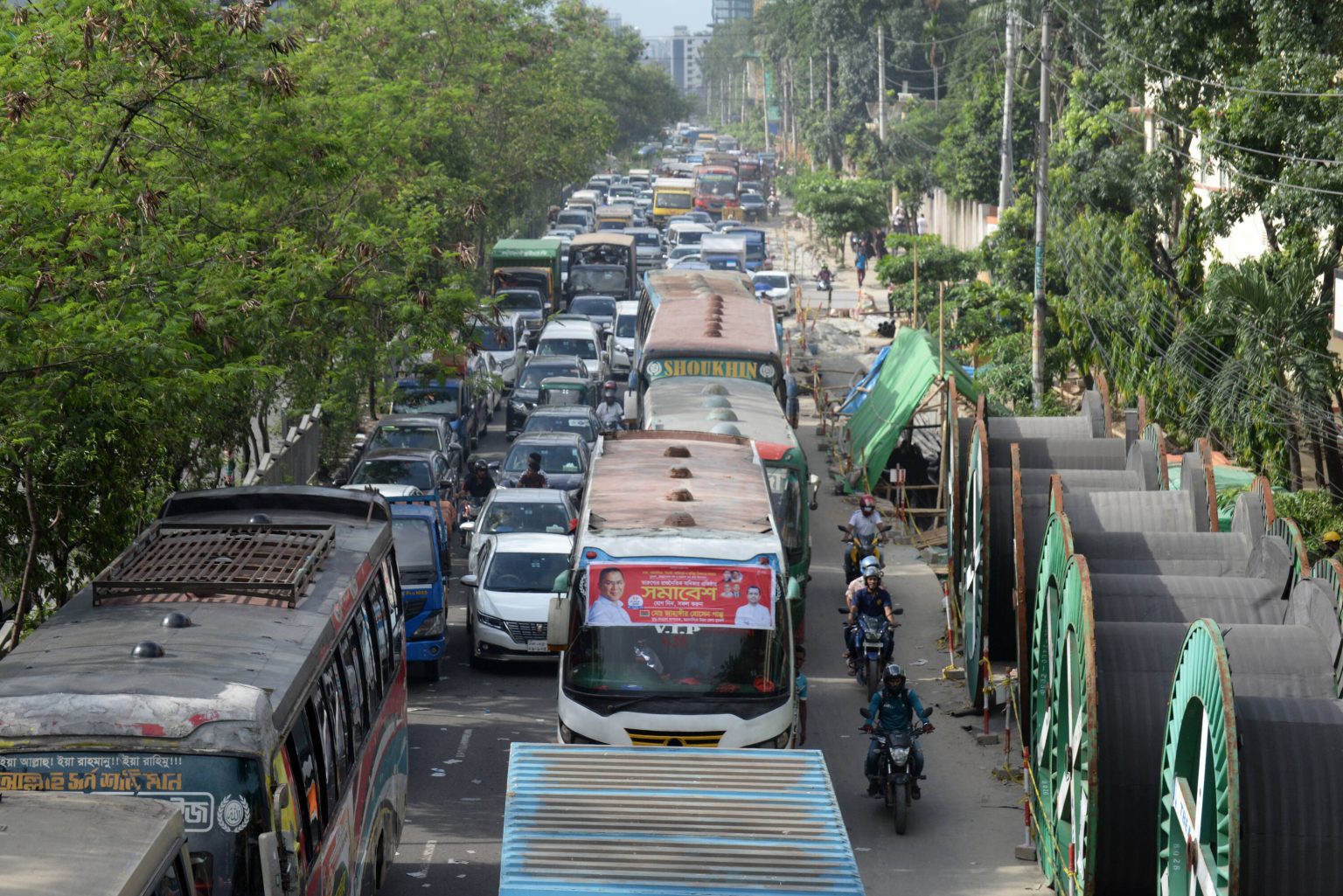The interim government has planned to bring Dhaka’s chaotic bus services under a single, unified system, a move that has failed several times in the past two decades.
The decision, announced in a post on the verified Facebook account of Chief Adviser Muhammad Yunus, stated that Dhaka’s bus system has been operating without regulation, resulting in chaos for commuters.
“Buses run on unplanned routes, causing severe traffic jams, frequent accidents, fare manipulation, and unsafe travel conditions. While younger and able-bodied passengers may cope, women, children, and the elderly often struggle to board amid the disorder,” the post mentioned. “Traffic congestion, much of it caused by buses on inefficient routes, costs the city an estimated Tk 370 billion annually and wastes around 3.2 million working hours every day,”.
As per the plan, all buses will now be regulated under a single, unified system. Companies will be required to operate only on prescribed routes and make stops at designated points, which would reduce traffic congestion, fare manipulation, and disorder through disciplined rotes and better-managed services. It will also enhance passenger safety and comfort, making bus travel more efficient and reliable.
“Bus travel in Dhaka will become easier, faster, and more reliable for millions of commuters. Passengers will no longer need to fight for space or face unfair fares, while the city as a whole will benefit from reduced congestion and safer, more orderly transport.”
Experts doubt whether the government will be able to implement such a difficult task within its tenure.
“We lost the opportunity. The interim government should have taken the initiative soon after coming to power,” observed Prof Shamsul Hoque, an expert on transport and infrastructure development.
Meanwhile, the Dhaka Transport Coordination Authority (DTCA), tasked with executing the plan, is unaware of the decision.
Asked about the decision, DTCA Executive Director Neelima Akhter said she was unaware of any bus route rationalisation plan.
“I read about it in the newspaper,” she told TIMES of Bangladesh, adding that the government would surely instruct them about it.
Failed attempts
The plan to discipline Dhaka’s chaotic bus service is nothing new. Since 2004, experts have been calling for the introduction of bus route rationalisation in the city to regulate buses in a disciplined way. That year, rationalisation of bus routes or a bus route franchise was recommended in Dhaka’s 20-year urban transport master plan.
However, successive governments failed to implement it due to their nexus with transport owners, who were opposed to such a plan.
Later, in 2016, the Awami League government revised the plan with the goal of addressing traffic congestion and improving connectivity in the city under route rationalisation.
The following year, Dhaka North City Corporation’s late mayor Anisul Huq took steps to bring all buses under several companies, but the initiative stalled after his death.
Then came the turn of Dhaka South City Corporation’s former mayor Sheikh Fazle Noor Taposh. He was appointed chairman of the Bus Route Rationalisation Committee. The committee held numerous meetings with transport owners but could not compel them to come under a single umbrella.
He started piloting the bus route rationalisation on a few routes, including Ghatarchar to Kanchpur, but it failed too.
Challenges and prospects
More than 5,000 buses, mostly old and broken, operate on unplanned 77 routes, bothering little about traffic rules. They hardly care about traffic police, stopping randomly on the roads and at intersections, disrupting the operation of other vehicles.
City dwellers wrestle to get on and off buses. For women, it is nearly impossible to travel on buses that are usually overcrowded.
The lone metro rail offers some relief, but it can carry only 300,000 passengers in a city with a population of 20 million. Experts say that bringing bus services under a system could provide huge relief to the people.
Kazi Zobyer Masud, a bus owner, welcomed the decision of the interim government. “However, problems may arise in implementation since every owner does not want to come under six or seven companies,” said Zobyer, who is the office secretary of the Dhaka Sarak Paribahan Malik Samity.
“We have examples of operating buses based on routes. Hatirjheel and cantonment bus services tell us that this is not undoable, but perhaps we won’t be able to discipline the buses,” said Shamsul Hoque. “We perhaps missed the train.”
In 2015, public buses began operating in the Hatirjheel project area with a total of four buses. This is a good example of how public buses can operate under a single company.
Road Transport and Highways Adviser Fouzul Kabir Khan said they would hold a meeting next week at the BTRA office regarding bus route rationalisation. “We are in discussion with bus owners too.”


